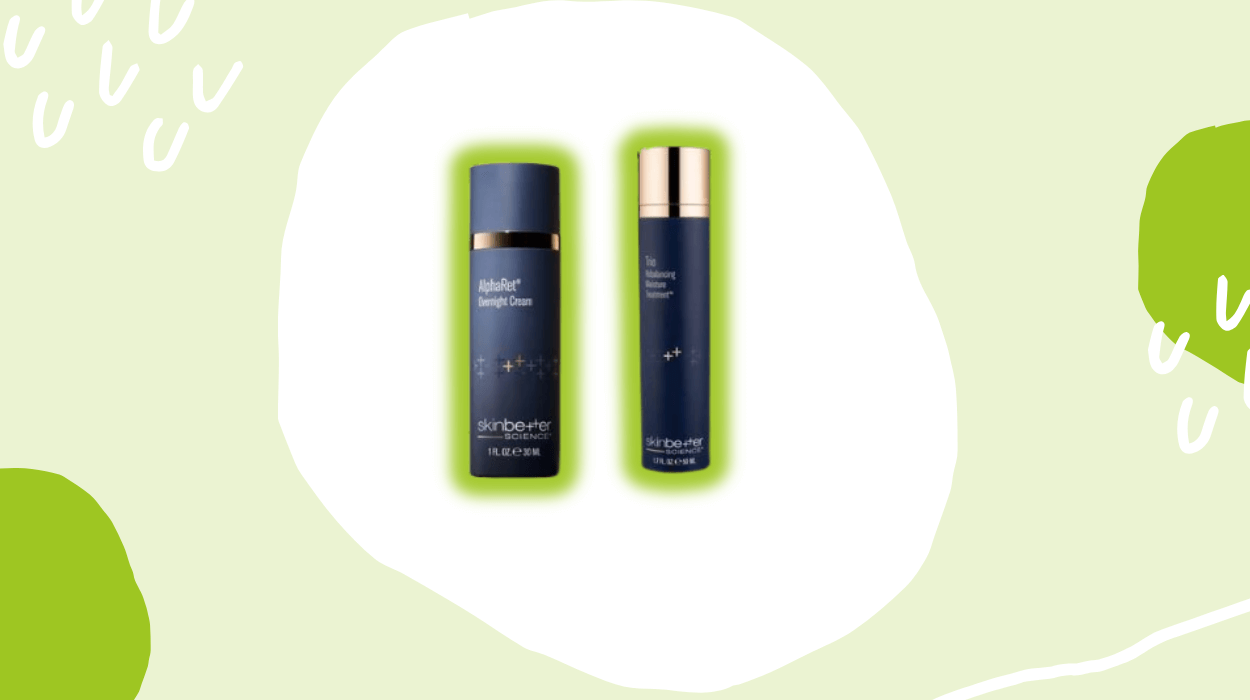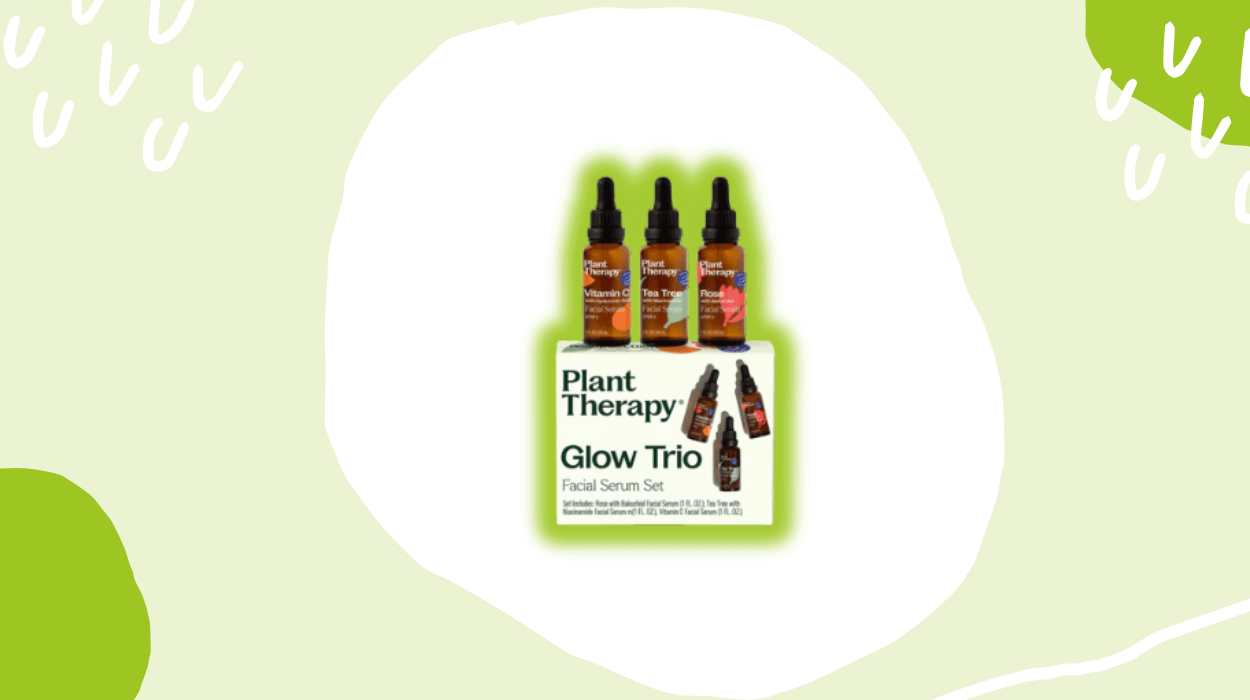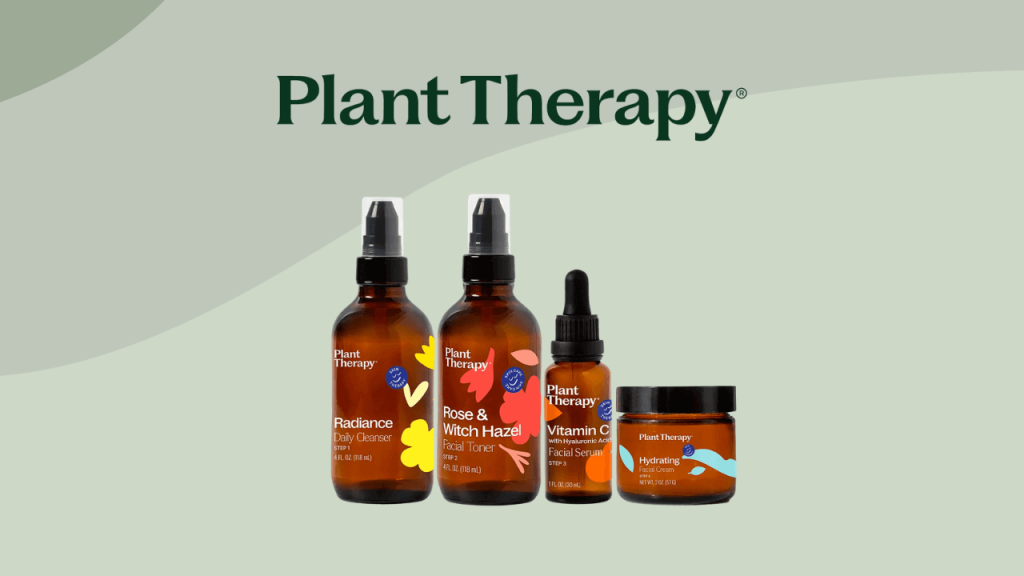

Plant Therapy offers a broad selection of plant-based products that may support everyday relaxation. Its product line includes oils, blends, organic options, and KidSafe formulations, along with body care, skincare, home-care products, and wellness accessories.
The brand states that its offerings are intended to help you create specific experiences, such as a calming bedtime environment and a more focused workspace, without relying on harsh ingredients.
In this review, we’ll take a closer look at the brand’s complete product offerings, how the brand positions itself within the natural wellness space, and the limitations you may want to consider before buying. We’ll also explore consumer reviews to understand common experiences, satisfaction patterns, and areas where users feel the brand could improve.
As per the official website, Plant Therapy focuses on providing essential oils and clean, accessible self-care products. The brand covers a wide range of categories, giving you multiple ways to combine aromatherapy and natural ingredients into your daily routine.
Its essential oil catalog features more than 400 options across singles, blends, organics, roll-ons, sets, and diffusers. Plant Therapy’s single oil option includes Lavender, Peppermint, Lemon, Bergamot, Pink Grapefruit, and Tea Tree, while blends include functional options like Germ Fighter, Germ Destroyer, Sniffle Stopper, and Respir Aid. Many of these also come in organic versions or pre-diluted roll-ons for easier application.
The brand also features a Kids category with its KidSafe blends, such as Nighty Night and Sniffle Stopper. It also extends into everyday wellness through skincare oils, massage blends, carrier oils, and structured routines like a four-step skincare system.
The brand also highlights that its essential oil batch undergoes independent third-party GC/MS testing, and the reports are published openly so you know the exact purity and composition. Plant Therapy is also cruelty-free (Leaping Bunny certified), bans over 180 potentially harmful skincare ingredients, and promotes eco-conscious sourcing and packaging practices.

Lavender Essential Oil has naturally occurring aromatic compounds such as linalool and linalyl acetate. Inhaling these compounds can interact with olfactory receptors, which then signal parts of your brain—particularly the limbic system, an area involved in stress responses and emotional regulation. This is why diffusing Lavender may help you create a calmer indoor environment, especially during evening routines or moments when you want to unwind. Lavender’s soothing qualities may also help ease occasional redness or irritation.
As per the official website, Germ Fighter Essential Oil Blend can be used for surface cleansing, air purification, and general seasonal support. It combines cassia, lemon, eucalyptus, clove, and rosemary.
Cassia Bark Oil contains cinnamaldehyde, which interacts with lipid membranes at the microscopic level. Lemon peel oil contains limonene, helping it disperse quickly in the air for freshening and odor neutralization.
Eucalyptus globulus leaf oil adds cineole which interacts with the trigeminal nerve, contributing to its cooling, clarifying aroma. Rosemary Leaf/Stem Oil provides 1,8-cineole and camphor which stimulate scent receptors tied to alertness.
Collectively, these oils may help maintain a clean, purified environment while offering aromatic support during seasonal challenges.
Frankincense Carterii Essential Oil is distilled from the resin of Boswellia carterii, which contains alpha-pinene, limonene, and incensole acetate.
Inhaling this oil allows these compounds to interact with olfactory receptors and the limbic system, which influences mood and emotional balance. Incensole acetate in particular may support neural pathways connected with calmness.
Applied topically, Frankincense Carterii may soothe irritation signals on the skin and support natural renewal processes. Compounds like alpha-pinene may also contribute to a warming, comforting effect when applied to tense areas.
Bergamot Essential Oil contains aromatic components such as limonene, linalyl acetate, and linalool, which may help create an uplifting yet calming environment. These compounds can help ease moments of nervous tension and support emotional balance.
Its citrus-derived components, particularly limonene, can help dissolve surface oils due to natural solvent-like behavior. Meanwhile, linalyl acetate and linalool can help calm skin-sensation pathways associated with irritation, making Bergamot suitable for blemish-prone skin when properly diluted.
The makers state that Bergamot Essential Oil can complement routines for emotional support, relaxation, and skincare without overwhelming your senses.
As per the official website, Organic Lemon Essential Oil contains limonene that interacts with olfactory receptors, stimulating brain regions involved in alertness and sensory processing. It can freshen indoor air, reduce unwanted odors, and support an energized atmosphere.
Lemon Oil’s scent is often associated with seasonal wellness practices because its citrus molecules can stimulate airflow and promote clarity. However, Lemon Oil contains furocoumarins that increase UV sensitivity, so topical use requires caution before sun exposure.
Sniffle Stopper combines Fir, Rosalina, Black Spruce, Cypress, Spearmint, and Virginian Cedarwood to support clear breathing.
Fir Oil contains bornyl acetate that interacts with olfactory and trigeminal pathways. Rosalina contains linalool and cineole, which can influence relaxation and clarity.
Black spruce and cypress oils provide crisp, woodsy notes supported by alpha-pinene and delta-3-carene, creating a sense of airflow openness. Spearmint contributes carvone, giving a gentle cooling sensation, while Virginian Cedarwood contains slow-evaporating sesquiterpenes that deepen the grounding effect.
The blend offers a gentle way to maintain a fresh atmosphere and encourage easier breathing for children without strong menthol-heavy notes.
Rose Absolute Essential Oil is extracted from Rosa damascena petals and contains citronellol, geraniol, and nerol. It may support emotional grounding and relaxation.
Diffusing this oil may help create a soothing environment during stressful moments or before sleep. Its compounds may also help support hydrated, radiant-looking skin by interacting with the skin barrier and aiding moisture balance.
The official website notes that its warm, comforting scent can help promote a romantic or calming atmosphere in personal fragrance or home-scenting routines.
Nighty Night is a bedtime-focused blend containing lavender, sweet marjoram, green mandarin, atlas cedarwood, patchouli, clary sage, roman chamomile, and blue tansy.
Lavender may help create a soothing environment. Sweet marjoram adds a soft herbal tone that may support mental unwinding. Green Mandarin softens the aroma without overstimulation.
Atlas Cedarwood contains sesquiterpenes such as himachalene, which diffuse slowly and promote comfort. Patchouli interacts with scent receptors tied to relaxation, adding depth. Clary sage includes natural esters like linalyl acetate, which may help balance and soothe aromatic properties.
This blend is designed to support restful routines and help children wind down peacefully.
Plant Therapy claims that its essential oil blends are created and reviewed by certified aromatherapists who specialize in evidence-based formulation and essential oil safety. The brand works under the direction and expertise of respected professionals such as Robert Tisserand, one of the most recognized figures in modern aromatherapy and co-author of *Essential Oil Safety: A Guide for Health Care Professionals*. His guidance helped shape the company’s safety protocols, particularly for formulations intended for sensitive users, including children.
The brand’s KidSafe line, a collection of essential oil blends, is developed under Robert Tisserand’s supervision. These products include Sniffle Stopper, Calming the Child, and Immune Boom, each designed to support wellness needs like clear breathing, emotional calm, and immune balance for children aged two to ten. Under Tisserand’s guidance, the brand’s in-house aromatherapists ensure that every blend in this line excludes oils such as eucalyptus, peppermint, and rosemary, which can be too strong or potentially unsafe for children. Instead, the formulations rely on milder, clinically reviewed ingredients such as lavender, cypress, sweet orange, and frankincense.
Plant Therapy’s internal aromatherapist team, composed of professionals such as Ellen Brenner, Retha Nesmith, and Christina Smith—each certified by the National Association for Holistic Aromatherapy (NAHA)—plays a key role in designing and refining blends for adult use. These experts formulate products such as Germ Fighter, which supports immune wellness, and Energy, made to help boost alertness and focus.
The brand highlights that its formulations are made by evaluating the chemical profile of essential oils (such as linalool in lavender or 1,8-cineole in rosemary) to ensure compatibility, safety, and aromatic harmony.
Plant Therapy claims to formulate its essential oils, blends, and body care products using 100% pure plant extracts obtained through traditional methods such as steam distillation, cold pressing, or CO₂ extraction. This helps maintain the natural aroma and therapeutic value of the plant without lab-made fragrance compounds.
As per the official website, each essential oil and blend—such as Lavender, Peppermint, Lemon, and Eucalyptus Globulus—is tested for purity to confirm that no synthetic fillers or artificial aromatic ingredients are present. GC/MS (Gas Chromatography/Mass Spectrometry) testing verifies these standards, and Plant Therapy publishes these reports for full transparency. The testing also confirms the presence of natural constituents like linalool in lavender or menthol in peppermint, which give each oil its characteristic aroma and therapeutic qualities.
Plant Therapy’s product range includes single essential oils, expertly crafted blends, roll-ons, body care items, and home wellness products aimed at supporting both emotional and physical health. All offerings are made using pure botanical ingredients without synthetic additives, making aromatherapy accessible regardless of age, lifestyle, or level of aromatherapy experience.
The brand offers over 100 single essential oils—including Lavender, Peppermint, Tea Tree, Frankincense, and Eucalyptus—used for purposes like stress relief, immune support, and respiratory wellness. Its extensive blend selection includes Relax, Energize, Germ Fighter, and Tranquil, each designed by certified aromatherapists to target specific wellness needs such as better sleep, improved mood, stress reduction, and natural home care.
Inclusivity extends to specialized lines such as KidSafe, co-developed with Robert Tisserand for children ages 2–10. These products use gentle essential oils such as lavender, cypress, and sweet orange, offering blends like Calming the Child, Immune Boom, and Sniffle Stopper. By providing safe, accessible options for adults, children, and families, Plant Therapy ensures that aromatherapy can fit a variety of routines and wellness goals.
Plant Therapy primarily operates as a direct-to-consumer brand, selling its products through its official site and Amazon storefront, with only a small presence in select local retailers or boutique wellness shops. The company does not have widespread partnerships with major national chains such as Whole Foods, Target, or Ulta Beauty. This means if you prefer to browse, test, or purchase products in person, you have limited opportunities to interact with the brand’s offerings before buying.
Plant Therapy is well known for its essential oils, carrier oils, and natural body care products, but it currently does not offer any products with broad-spectrum SPF protection verified by clinical testing or regulatory approval.
The brand’s skincare range, including Vitamin C Facial Serum, Tea Tree Face Cleanser, and Calendula Cream, focuses on nourishment, hydration, and skin repair—not sun protection.
Although the brand often highlights the natural sun-defensive properties of ingredients like red raspberry seed oil and carrot seed oil, these oils have not been proven through standardized SPF testing to provide reliable or sufficient UV protection.
None of its formulations are labeled or marketed as sun-protective products. This means if you need daily skincare that combines moisture and verified sun defense, you will need to pair Plant Therapy products with a separate SPF. This makes the brand’s offerings incomplete for those who prefer all-in-one natural skincare with clinically validated UV protection.
Edens Garden and Plant Therapy both focus on essential oils, but they differ in their positioning, the scope of their offerings, and their approach to quality and transparency.
As per its official website, Edens Garden is a specialized aromatherapy brand centered on ethical sourcing and sustainable farming practices. It claims to partner with farms that prioritize fair wages, safe working conditions, and responsible crop management. Many of its offerings—such as Blue Tansy, Angelica Root, German Chamomile CO₂, and Buddha Wood—highlight a focus on botanically rich, single-origin oils.
Plant Therapy, on the other hand, takes a broader lifestyle-oriented approach. While it also emphasizes purity supported by third-party GC/MS testing, it gives equal attention to accessibility, education, and usability. Its blends such as Germ Fighter, Respir Aid, Nighty Night, and Sniffle Stopper are designed for everyday wellness needs and family-friendly use.
Their product ranges show another distinction. Edens Garden mainly remains within the aromatherapy category, offering singles, blends, roll-ons, carrier oils, and seasonal items—creating a curated, essential-oil-focused lineup.
Plant Therapy carries a much broader catalog, including skincare, hair care, bath and body, household cleaning items, kids’ products, supplements, diffusers, organic oils, and bulk purchase options. It offers classic oils like Lavender, Peppermint, Tea Tree, and Pink Grapefruit along with an extensive variety of blends.
Both brands maintain strong quality standards but highlight different strengths. Edens Garden emphasizes organoleptic checks and in-depth lab testing—refractive index, specific gravity, and GC/MS—followed by review from in-house aromatherapists, giving it a craft-driven reputation.
Plant Therapy also relies on third-party GC/MS testing, but differentiates itself by publishing all batch reports on its website, ensuring full transparency for customers who want to verify species and purity.
Overall, Edens Garden prioritizes ethically sourced, craft-focused aromatherapy, while Plant Therapy emphasizes convenience, variety, transparency, and family-friendly formulations.
According to its official website, Cliganic maintains a streamlined catalog centered on organic essentials such as Organic Frankincense, Organic Lavender, Organic Peppermint, and curated sets like the Top 8 and Top 12 Organic Aromatherapy Kits. It also extends into categories including skin oils, hair oils, lip balm sets, mosquito repellents, cotton products, and supplements—creating a practical, minimalist lifestyle brand.
The brand emphasizes clean standards backed by USDA Organic and EWG Verified certifications. Its use of recyclable or PCR packaging also aligns with its commitment to sustainability and simple, accessible wellness.
Plant Therapy, by contrast, operates with a far broader product ecosystem. Its catalog includes more than 400 items across essential oils, blends, roll-ons, organics, diffusers, and functional formulas (e.g., Germ Fighter, Sniffle Stopper, Respir Aid, Frankincense Carterii).
Plant Therapy further expands into bath and body care, KidSafe essential oils, household cleaning, supplements, carrier oils, and targeted skincare oils. It heavily emphasizes education and transparency, offering safety guidelines, detailed filtering tools, and public third-party testing reports to support informed decisions.
Pricing also distinguishes the two brands. Cliganic keeps most essential oils budget-friendly, typically in the $8.99–$12.99 range for 10 mL.
Plant Therapy offers similar pricing for common oils like Lavender or Peppermint but covers a much wider pricing range for specialty oils and blends, with options like Frankincense Carterii priced around $15.99–$18.99.
In summary, Cliganic delivers simple, organic, budget-conscious essentials, while Plant Therapy focuses on variety, advanced formulations, family-friendly blends, and a deeper aromatherapy ecosystem.
We evaluated Plant Therapy by reviewing customer feedback on Trustpilot, where the brand has a 3.6 rating based on 30+ reviews. Many customers express confidence in the brand’s product quality, straightforward pricing, and non-MLM approach. They appreciate the well-packaged orders, clear labeling, and helpful educational resources, which suggests consistency in product delivery and information.
However, some users report delays in shipping, challenges in reaching customer support, and occasional issues with wholesale account verification or damaged orders.
Several customers also mention receiving a high volume of marketing emails, which—while unrelated to product quality—affects how they perceive ongoing engagement with the brand.
Overall, the reviews indicate that Plant Therapy offers strong product value and has cultivated trust among many long-term buyers. At the same time, customer feedback highlights areas for improvement, particularly consistency in support and communication.
Plant Therapy focuses on essential oils and aromatherapy, emphasizing transparency, third-party testing, and family-oriented product development.
It holds an A+ rating on the BBB, reflecting strong responsiveness to concerns and adherence to proper business practices.
The brand also has a 4.5 rating on Tenereteam, though from only 7+ reviews. While the feedback is positive, the low review volume provides a limited representation of the broader customer experience.
Overall, Plant Therapy maintains a strong reputation, though the small number of external consumer reviews means the full picture of customer satisfaction is not fully captured.
Plant Therapy focuses on making aromatherapy accessible by offering a wide selection of single oils, blends, roll-ons, and home-wellness products supported by clear ingredient transparency.
The brand claims to provide plant-derived formulations through traditional extraction methods such as steam distillation, cold pressing, and CO₂ extraction, along with published GC/MS reports that verify each oil’s chemical composition.
However, natural variability across plant harvests can lead to inconsistencies in scent and intensity, and the extensive product catalog may feel overwhelming when you are just starting.
The brand also has limited physical retail presence and does not offer clinically verified SPF products, creating gaps if you prefer natural skincare with built-in sun protection.
As essential oils contain concentrated chemical compounds, it’s important to use them carefully. Oils high in constituents such as 1,8-cineole or menthol may cause respiratory discomfort in your children when used in strong concentrations, while undiluted application of potent oils rich in aldehydes or phenols might cause excessive skin irritation and sensitization.
Citrus oils containing furanocoumarins, such as expressed bergamot or cold-pressed lemon, can heighten photosensitivity when applied topically before sun exposure. To reduce these risks, patch testing on a small area of skin, following appropriate dilution guidelines, and avoiding direct sunlight for several hours after using phototoxic oils are essential steps for safe use.
Contact us at [email protected] or follow @leafsnap on Twitter! View our Privacy Policy.